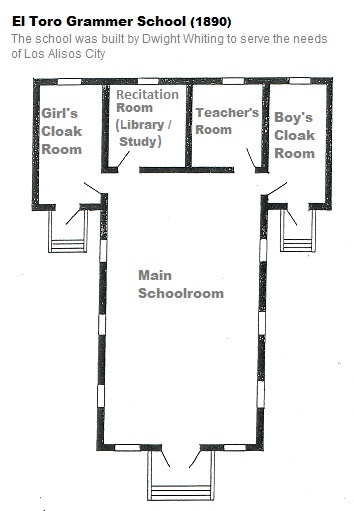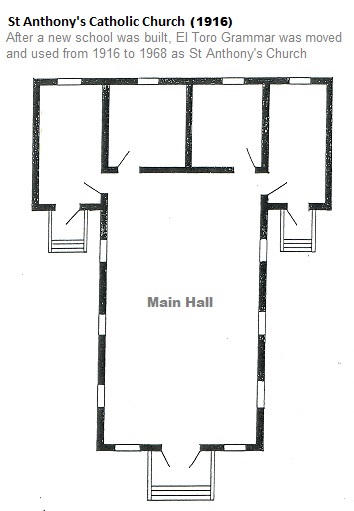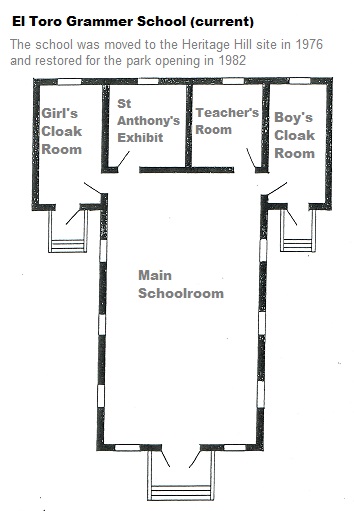El Toro Grammar School (1890)
1000014
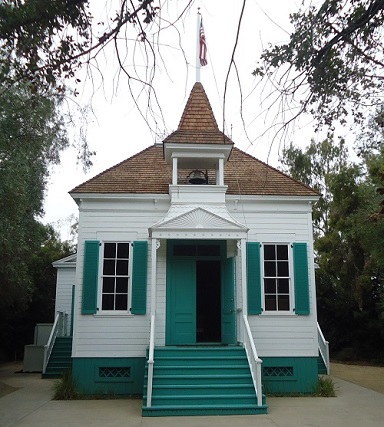 The El Toro Grammar school was built by Dwight Whiting in 1890 to serve the residents of the planned Los Alisos City, later renamed El Toro. The architecture was heavily influenced by New
England and San Francisco styles including a "widow's walk" on the top of the building. Boys entered through the cloakroom on the right and girls entered through the cloakroom on the left.
The El Toro Grammar school was built by Dwight Whiting in 1890 to serve the residents of the planned Los Alisos City, later renamed El Toro. The architecture was heavily influenced by New
England and San Francisco styles including a "widow's walk" on the top of the building. Boys entered through the cloakroom on the right and girls entered through the cloakroom on the left.
Enrollment in the early years was between 40 and 50 students but typically only half would be in attendance due to the demands of the farming life. Students might ride mules or horses to school if the animals were not needed at home but most often walked.
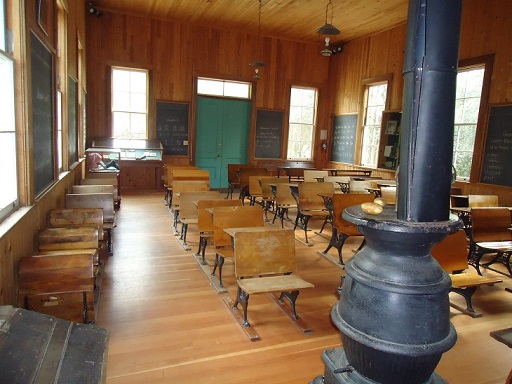 The interior was originally made of redwood but was redone using pine when the building was renovated for display at Heritage Hill. Blackboards
around the room outlined lessons for grades 1 through 8. The stove at the front was the onlysource of heat and could be used by students to heat their lunch if desired.
The interior was originally made of redwood but was redone using pine when the building was renovated for display at Heritage Hill. Blackboards
around the room outlined lessons for grades 1 through 8. The stove at the front was the onlysource of heat and could be used by students to heat their lunch if desired.
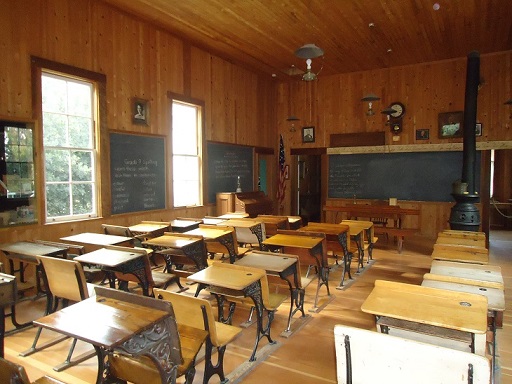 Smaller desks were placed at the front of the room for the lower grades; larger desks were towards the back for the older children. Some lessons might involve all students while at other times
the teacher would assign work to each grade and then work with smaller groups on specific lessons. Older children were often involved in helping with the younger children while the teacher
worked with another group.
Smaller desks were placed at the front of the room for the lower grades; larger desks were towards the back for the older children. Some lessons might involve all students while at other times
the teacher would assign work to each grade and then work with smaller groups on specific lessons. Older children were often involved in helping with the younger children while the teacher
worked with another group.
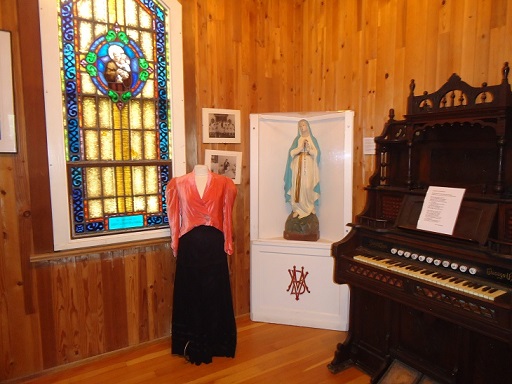 In 1914 a new 2-room brick schoolhouse was built and the original school was largely abandoned. In 1916 it was moved a few blocks to El Toro Road and reopened as St Anthony's Catholoc Church.
Services continued until 1968 when St Nicholas's was built and St Anthony's was abandoned for several years. In 1976 the old school was acquired by the Saddleback Historical Society and
moved to the Heritage Hill site.
In 1914 a new 2-room brick schoolhouse was built and the original school was largely abandoned. In 1916 it was moved a few blocks to El Toro Road and reopened as St Anthony's Catholoc Church.
Services continued until 1968 when St Nicholas's was built and St Anthony's was abandoned for several years. In 1976 the old school was acquired by the Saddleback Historical Society and
moved to the Heritage Hill site.
One of the smaller rooms in the front of the schoolhouse now displays artifacts from the period when the building served as St Anthony's.

Enrollment in the early years was between 40 and 50 students but typically only half would be in attendance due to the demands of the farming life. Students might ride mules or horses to school if the animals were not needed at home but most often walked.



One of the smaller rooms in the front of the schoolhouse now displays artifacts from the period when the building served as St Anthony's.
